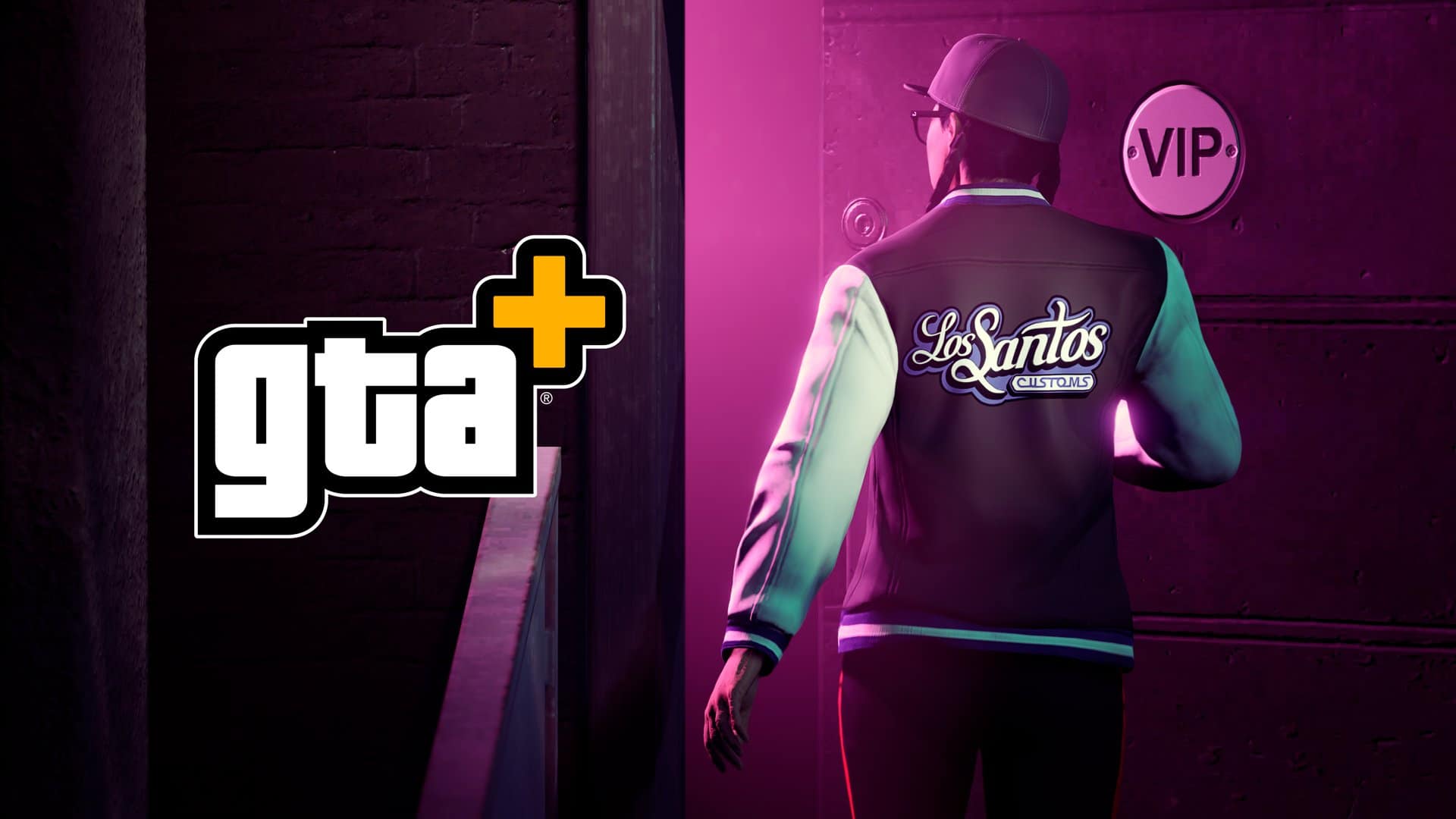opinion: With GTA+, GTA Online launches a controversial in-game subscription service. But the real controversy might be yet to come.
Actually, Rockstar’s new subscription service, GTA+, is like that misplaced LEGO brick you drunkenly step on at night. It hurts like hell – and I mean like hell! – it hurts like hell, but in the long run it’s not really that bad. In the worst case, you’ll end up with a LEGO brick-shaped hole in your foot and will be able to build yourself into LEGO sets in the future (quite a cool idea, actually).
And GTA+? That’s also causing an angry, pained and annoyed murmur in the GTA Online community right now, but in the long run it might not matter as much as Bethesda’s Fallout First subscription in Fallout 76.
In the case of GTA, I pay a monthly fee of 6 euros on PS5 and Xbox Series X, get a few in-game discounts and bonuses in return, and 500,000 GTA dollars, which are worth as much as a fart in the wind in 2022 anyway, because Rockstar has been inflating its own in-game economy for years to get people to buy the real-money currency Shark Cards.
Half a million dollars might have been worth something four years ago, but nowadays? Various cars and real estate have price tags in the millions, because ideally I’m supposed to grind GTA Online daily or shortcut my way via microtransaction to reach those juicy in-game carrots eventually. Accordingly, for 6 euros a month I get a pretty lousy deal – so who cares?
And that’s the crux of the matter. Because the big danger of GTA+ doesn’t come from Rockstar itself – but from everyone else.
Table of Contents
Follow the money
What FBI agents in mafia thrillers take as their motto also applies to big game publishers: follow the money. In principle, that’s not a problem either; after all, we all want to make money, because money is beautiful. Money finances the most important items in my life: my nose hair trimmer, a new mint-coloured coffee machine and my fabulous Ultrawide monitor.
But at the consumer level, heaps of gaming shitstorms in recent years can be traced back to publishers trying to make too much money in the wrong way.
Lootboxes, crappy pre-order bonuses, premature releases, horrendous microtransactions, annual passes, season passes, purchasable in-game benefits and, and, and. In the digital age, there was plenty of experimentation with our wallets – and these experiments sometimes ruined really good games:
It’s all water under the bridge, though, because the here and now is actually largely fine. In most games, I can only buy cosmetic knick-knacks – as a Battle Pass or a DLC bundle – but apart from that, there’s no really unseemly sow being herded through the village to pick the pockets of us all. Peace returns to the monetisation market.
Okay, maybe apart from the NFT nonsense, Team 17 and the Stalker 2 developers from GSC had to row back faster than the German eight because of massive headwinds.
But I predict: Subscription services will severely disturb this monetisation calm – for better or for worse.
The Age of Subscription Services
If you haven’t lived under a LEGO brick in the last three years, you know by now: the age of subscription services is here to stay. Microsoft’s Game Pass has become the gaming offering alongside Steam – and quite rightly so in my eyes. Hundreds of games, including brand new blockbusters, for the price of a Netflix subscription? I don’t even get that much bang for the buck – to put it in French – on Steam’s absolute slammin’ sales.
Of course, this is also due to the fact that Microsoft is currently ploughing through the gaming world like a hoover to buy up publishers and developers with monstrous sums of money, with which one could alternatively afford one’s own pirate island in the Caribbean.
This monopolisation has its own risks, but on the other hand it also provokes what we are currently seeing with Sony (long overdue): The competition is setting up their own subscription services.

But how does this affect the games themselves? Sure, short single-player experiences are gaining traction for publishers because a Star Wars Jedi: Fallen Order is driving people into subscriptions where a few years ago it would have stunk against a FIFA in terms of profitability due to a lack of long-lasting service-game monetisation. But GTA+ shows a second path that I find extremely questionable: Turning individual games into subscription services.
A self-created market
Of course, subscription games are not new – hello, World of Warcraft. But monetisation is not inherently evil, it just depends on the implementation. And to feed a full-price game with an already horrendously high paywall with a paid subscription that divides the player community into premium and normal communities … whew. The problem is: I can rant about it all day long, but at the end of the day, GTA Online is just like FIFA a gigantic success.
Rockstar is counting on a target group that plays nothing but GTA anyway. If only a fraction of them invests in GTA+, the whole thing should be worth it, because ultimately the developers are creating value out of nothing. After all, stuffing 500,000 ingame tokens into the pockets of subscription members once a month does not require any production costs, but is ultimately number crunching. Administration also costs money, but of course much less than new levels or missions.

Of course there are limits – and they are also determined by money. If GTA Online throws a million dollars at your feet every week, no one will buy Shark Cards anymore. Even in an artificial economy, there has to be artificial scarcity for the system to work.
But publishers have far from exhausted how much they can turn their games into virtual shopping malls. And services like GTA+ could tempt the industry to take the kipper off the ten-metre board here.
When a game becomes a subscription
Let’s take Rainbow Six: Siege, which is really following every conceivable trend in terms of monetisation anyway. First there was the paid annual pass and paid DLC bundles, then came paid lootboxes, then temporary paid event lootboxes, then seasonal paid Battle Passes.
In 2021, the Annual Pass was abolished because people already have to spend their tenner on Battle Passes four times a year – and in 2022, well, the Annual Pass is coming back, but at least it contains all four Battle Passes and, hach …

I’d at least put my hand in lukewarm water that Ubisoft+ as a global Ubisoft subscription has no long-term future and will eventually be absorbed into Game Pass, but a Rainbow Six+? What’s to stop Ubisoft from offering the community a monthly £6 subscription that gives you upfront access to all new Operators, 20 free stages in Battle Pass, three exclusive skins and … I don’t know, Christmas baubles with gun designs?
What’s to stop developers from offering Assassin’s Creed+ for 5 euros with pre-access to new content and exclusive skin packs including Altair’s hood and Ezio’s beard? Or to move away from Ubisoft: Just rumours are trickling in that Call of Duty: Modern Warfare 2 is getting some kind of subscription service for 2022/2023. Maybe the FIFA bosses are suddenly thinking: let’s just sell the Ultimate Team enthusiasts a bonus card package subscription for 10 euros a month.
GTA Online is one of the most successful service games ever and has been influencing the industry in terms of open-world design and monetisation for years anyway.
So who is stopping the industry from being inspired by GTA+ to experiment in this way? Ultimately, only you.
You are the corrective
FIFA, as mentioned above, is the prime example of loud minorities who ultimately can’t change the fact that Ultimate Team has been printing money for years and will therefore last at least as long as the development of Star Citizen: until the end of time. But conversely, there’s still no stronger corrective in the gaming world than the community.

If you all had waved through the lootboxes in Battlefront 2 and orc wonder bags in Middle-earth: Shadow of War, we’d be seeing them in every game today. If you’d given Ghost Recon: Breakpoint a pat on the back, Assassin’s Creed Valhalla and Far Cry 6 would now be churning out new Battle Passes every few months.
Sure, that demand determines supply is no great wisdom now. If the wild subscription experiments start, then it’s up to you, us and me to put the publishers in a sensible frame of mind. After all, subscription services don’t have to be a disaster.
They can offer optional added value, as in Star Wars: The Old Republic, where I get plenty of content as a Free2Play player, but have to pay for certain add-ons and comfort functions. Or they cluster all the cosmetic monthly DLCs like a GOTY edition as an all-round carefree package, without any compulsion from a gameplay perspective.
A positive example of such a cluster are the Paradox strategy games: I can treat myself to Europa Universalis 4 and myriad DLCs for almost 400 euros, or I subscribe to the game for 5 euros a month to get access to everything. There really is an alternative here for different types of players: If you want to sink 3,000 hours into EU4, like my colleague Reiner, you’re certainly better off with the 400-euro package (which is also regularly reduced in the sale). If I only put in one year instead, then I can get away with it far more cheaply as a subscriber.
The downsides of subscription services
But I just want to emphasise how important the community is as a corrective, because subscription services can also have really unpleasant consequences. For example, by dividing the community in the same way that paid multiplayer map packages did back then, because only premium members have access to new maps or something. A bitter blow to the wonderful crossplay and community progress of the last few years.

And wilder still: Subscription services give publishers a perfidious lever to split the game itself. For my 60 euros, I then get fries without mayo and ketchup, just the paltry basic version, for example a small Total War campaign with two of four commanders, limited to two of four chaos empires. Only members of Total War Premium or Total War Plus get the big map.
Okay, it’s just wild speculation (and hopefully no one from Creative Assembly is co-writing ideas here), but when the wrong games suddenly become subscription services in the wrong way, it doesn’t just weigh on your wallet. And this is actually where the biggest tragedy lies: as a fan, I’ve suffered too many times from what should have been a good game becoming a Frankenstein’s monster through monetary practices and trend-whacking.
Breakpoint, Battlefront 2 and Battlefield 2042 are not simply products like toothpaste, but creative visions of hundreds of people influenced by countless factors. And anyone who has seen Indiana Jones 3 knows the risky grab for the Holy Grail: if you want to concoct the next money-printing machine too much, you end up with Battlefield 2042 and sacrifice an actually exciting experience to some trendy idol.
But good, it’s still only GTA+. Only the fans of GTA Online are still raging, who after the lousy next-gen release and the even lousier GTA Trilogy are somewhere between Park Street and Go Straight to Jail in terms of mood anyway. But as the Italian rapper Ovid said back in the day: Wehret den Anfängen.


